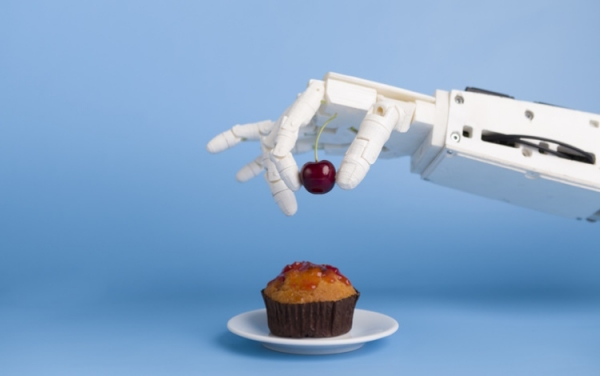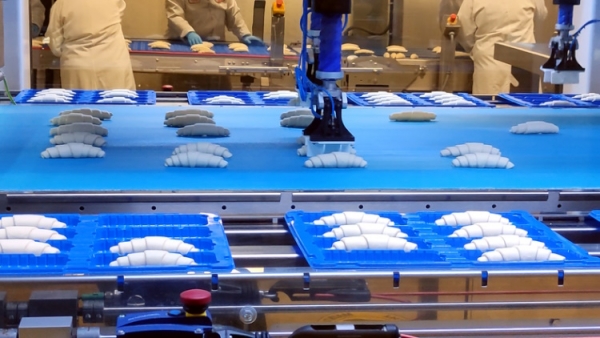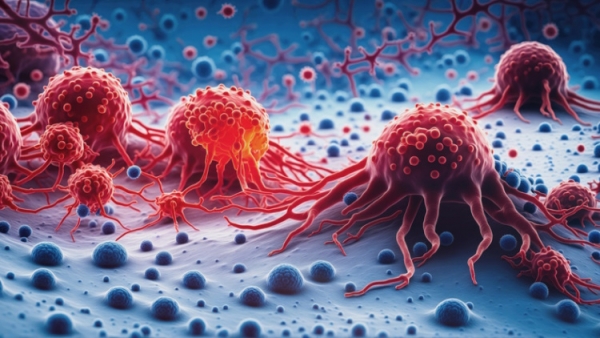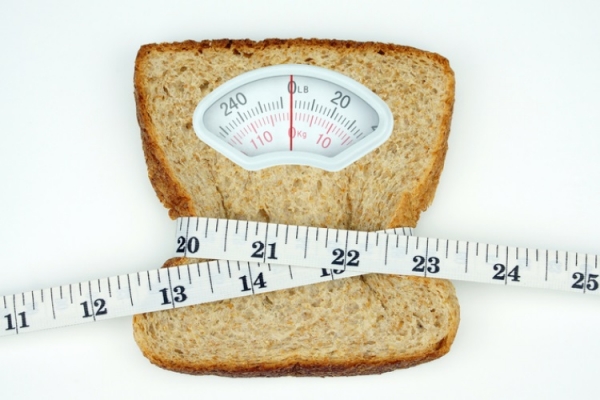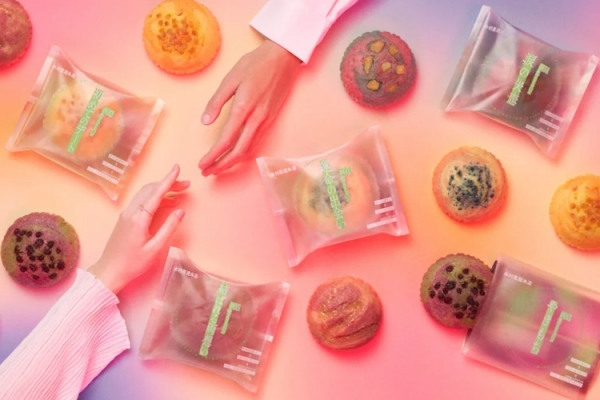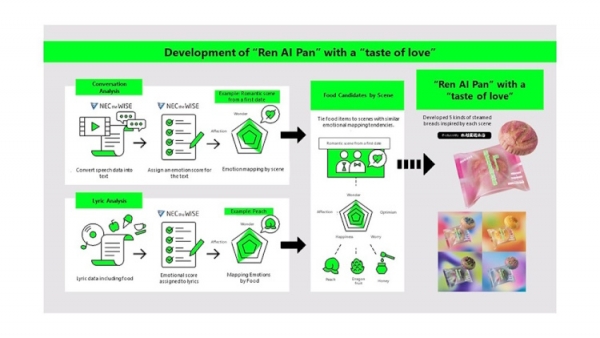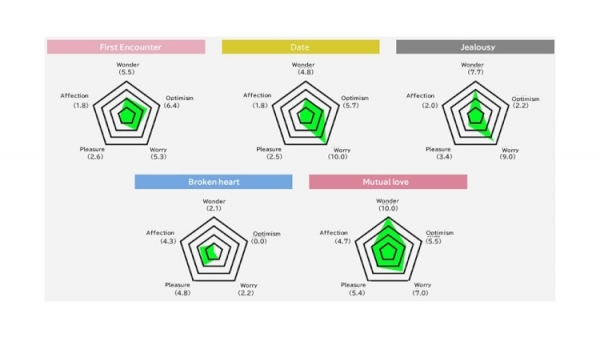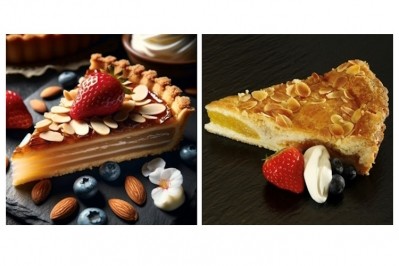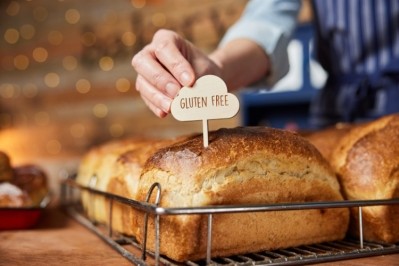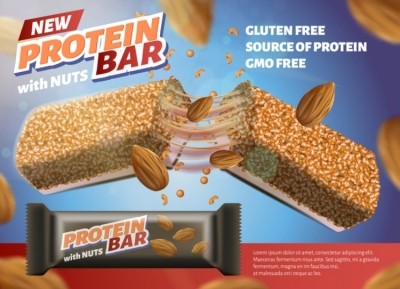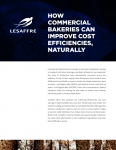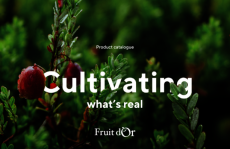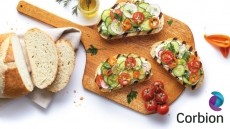What do bread, romance and cancer have in common?
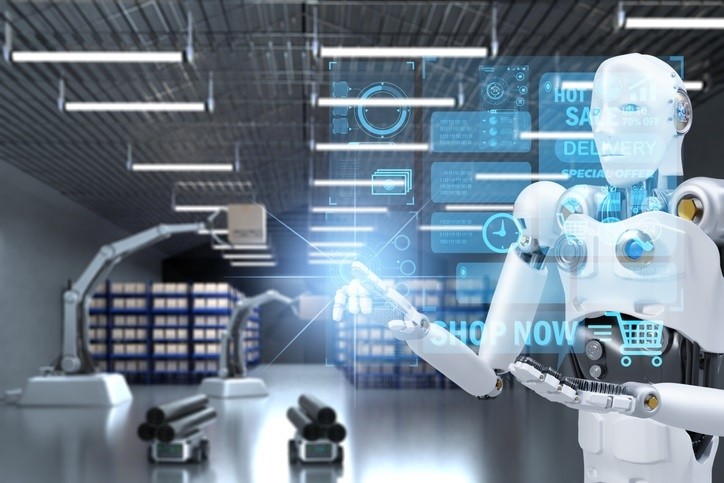
Google ‘AI bread’ and you’ll be presented with 263 million results. The artificial intelligence (AI) revolution – foretold of during the 1960s – is well underway in the second decade of the 21st Century.
Researchers agree a period of phenomenal growth lies ahead. A 2019 study in Frontiers in Neuroscience noted AI-operated machines and technologies will extend the reach of Homo sapiens far beyond the biological constraints imposed by evolution: outwards further into deep space, as well as inwards into the nano-world of DNA sequences and relevant medical applications.
Industry 4.0
The Fourth Industrial Revolution is the ongoing automation of traditional practices, using smart tech like AI and digital twin, a program that uses real-world data to create simulations that can predict how a product or process will perform. For the food sector, Industry 4.0 means more efficient processes through the use of fully-integrated collaborative systems that respond in real-time to meet the changing demands and conditions of the factory.
Although in its infancy and still conjuring up futuristic and even dystopian imagery, AI is indeed being embraced by the food industry.
For example, industry leaders like Nestlé and Nuritas have adopted AI to identify proteins that enable the production of healthier foods, while Kraft Heinz uses it to optimize relationships with retailers and consumers.
It's also having an impact in the bakery space.
While there is a greater uptake to enhance efficiencies, workers wellbeing, the consumer experience and to forecast sales, it’s also being used to develop novel recipes.
Such as the Ren AI Pan range – which translates as AI Romance Bread – from Kimuraya Sohonten Co, one of Japan’s oldest bread producers. Also, the AI-developed sandwich base and cake targeting personalized nutrition by Hungarian bakery manufacturer Hajdúsági Sütödék. Then there is the pastry AI that was the inspiration for a system to identify cancerous urinary cells with 99% accuracy.
Unifying art with science
With the rising popularity of artisanal breads that merge tradition with technology, AI is empowering bakers unlock new levels of precision, consistency and innovation with its ability to analyze vast amounts of data, monitor variables and provide real-time insight.
In June 2023, AI Cuisine published a blog that discussed how AI is revolutionizing each stage of breadmaking.
AI is helping bakers to determine the ideal hydration levels, kneading techniques and resting times to foster gluten development. AI-powered tools also aid in controlling fermentation conditions by monitoring temperature, humidity and pH levels. Then AI-powered ovens are putting the power back into the hands of the baker to precisely control temps and humidity.
And that’s not all. AI enables bakers to unleash their creativity. Specific AI-driven visual recognition tools can analyze dough characteristics, recommending shapes, while algorithms can assist in designing scoring patterns that not only look good but influence crust development and crumb structure.
“As AI continues to evolve, the future holds exciting prospects for breadmaking, where creativity and precision harmonize to produce remarkable loaves that delight discerning palates,” wrote AI food chemist Pila Man.
“So, roll up your sleeves, embrace the wonder of AI, and let your bread creations rise to new heights of excellence and delight.”
The quiet revolution
According to Campden BRI’s Gary Tucker and Mike Adams, AI is quickly becoming the accepted norm.
“Specialists in the field call it the Tesler Effect after a comment made by American computer scientist Larry Tesler way back in 1979 when seeking to define the technology: ‘AI is whatever hasn’t been done yet’,” they penned in an article published in Baking Europe.
In 2019, the UK research institute won a grant from Innovate UK to find out whether AI could improve bread dough mixing in order to reduce bakery waste.
Almost 80% of the UK’s bread is made with automated systems, with an automated bread line typically operating two 400kg capacity mixers feeding the line with dough at production rates of up to 10,000kg/h. That’s an estimated 12 million loaves of bread and two million pizza bases made in the UK every day, according to NABIM.
On the downside though, poor dough quality – which has a major impact on each downstream processing stage – can cause equipment failure that generates waste. That is costing the industry around £205m annually, according to waste charity WRAP.
This led Camden BRI to enlist RedBlack Software, creator of the market leading Cybake bakery management application, to create an intelligent dough mixing system that would reduce waste by as much as 50%.
“The project on intelligent dough mixing is just the beginning,” wrote Tucker and Adams.
“There are bound to be many ways in which AI weaves its way into the lives of bakers over the next decade that are still unforeseen. There may not be too much fanfare about all of this, but blink and you might miss it. In true Tesler effect-style, AI will already be quietly working away in the background at some mundane task without us ever even knowing.”
Such as Camden BRI Hungary’s PO4Bake project to optimize bakery processes to cater to demand. The 2020 project – funded by EIT Food – looked into the use of AI and digital twin to help small and medium-sized bakers adjust the amount and range of baked products to the actual demands of consumers, while adapting production planning and processes to best practice. This would make machine-powered processes more efficient and, in turn, reduce raw material use, energy consumption and CO2 emissions.
The pastry AI being used to conquer cancer
Not so mundane is Brain Corps’ BakeryScan, which was made to differentiate more than 50 types of pastries and bread and is now being used to detect cancerous cells.
The AI platform actually came into being after a 2007 survey revealed Japanese consumers want a bigger variety. A bakery that offered 100 varieties of pastries would sell twice as much as a bakery offering 30 varieties. The study also found customers preferred pastries sitting in open baskets, without wrappings.
This, however, led to challenges at checkout, so the bakery chain turned to Brain Corp to automate the process with AI. BakeryScan can identify each unique pastry and correctly price it, expediting the checkout process while also making it more hygienic.
Fast forward a decade and thanks to a doctor from Kyoto’s Louis Pasteur Center for Medical Research – who realized that scanned images of bread looked like certain cancer cells under a microscope – Cyto-AiSCAN was born. Using the same tech that can differentiate a donut from a cream puff, it can analyze an entire microscope slide of cells at once instead of each cell individually, dramatically speeding up the diagnostic process and helping doctors more effectively treat patients.
Personalizing nutrition
Hajdúsági Sütödék’s adoption of the tech was backed by a HUF1bn ($2.7m) investment to create an AI-powered plant for frozen baked goods.
The Hungarian bakery manufacturer uses the power of more than half a dozen AI platforms in various aspects of its operation, from product ideation to recipe recreation and product development, and even for marketing strategies and designing communication platforms like websites with visual content, music selection and verbal boosts.
CEO Tamás Szakács said by using AI, the Debrecen-based company is able to create more modern and healthier products, such as a 400g bread called Csevegő, and a sandwich base and a cake under its Vitajó brand, which supports the immune system.
“The application of AI has enabled the company to further develop its product offering, with an emphasis on both taste and nutrition,” said Szakács, emphasizing the taste and product experience remained exclusively human.
“This demonstrates the company’s commitment to ensure that AI-driven products are in line with human preferences and expectations.”
What does love taste like?
More recently, Kimuraya Sohoten partnered with NEC Corporation and Abema TV to produce a range of breads in flavors that were inspired by the popular TV program, ‘I Fell in Love with You Today’.
Market research by the 150-year-old Japanese bakery manufacturer found that although a growing number of young people say they are not interested in pursuing romantic relationships, there is still a strong desire to fall in love.
The company is banking on AI Romance Bread to bridge that gap with flavors that evoke feelings of being in love.
To start, NEC used its AI to analyze 15 hours of footage of the show, converting the conversations into text and placing each into one of five categories: a fateful encounter, a date, jealousy, heartbreak or mutual love. AI was then used to assign ‘emotional scores’ to the conversations to create a visual map that matches the different stages of love to specific flavors.
AI was also used to extract the lyrics of approximately 35,000 Japanese songs that related to love and food, including 183 types of fruits and sweets.
Using this information, AI selected ingredients representing the emotions associated with love. The bakery then worked its magic to create five flavors of fluffy steamed bread:
- Fateful Encounter: flavored with cotton candy (representing the airy, first twinges
- First Date: zings with lime and orange peel
- Mutual Love: a sweet-and-tart mix of honey, peach and dragonfruit
- Jealousy: purple sweet potatoes, truffle oil and raisins
- Tears of Heartbreak: punching in with apple cider and grapes
What lies ahead?
AI sparked both dread and excitement long before the phrase was coined.
However, founder of computer science Alan Turing was spot on when in 1947, he said that before the end of the century, one would be able to speak about ‘machines that could think’ without being disputed.
Machine learning has given birth to the more nuanced idea of deep learning and today, previously unthinkable things are becoming commonplace. New chapters open up every year and the future of AI – like dough – is rising.
Studies:
Making BREAD: Biomimetic Strategies for Artificial Intelligence Now and in the Future
Authors: Jeffrey L. Krichmar, William Severa, Muhammad S. Khan, James L. Olds
Front. Neurosci., 27 June 2019, Volume 13 – 2019
